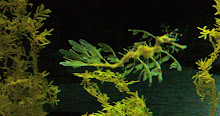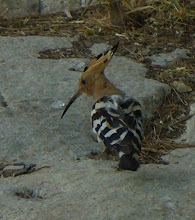
Emperor Tamarin, Saguinus imperator. Image (c) Victoria Neblik, 2010, all rights reserved.
The emperor Tamarin is a South American species, found- specifically, in the rainforest in parts of Eastern Peru, Northern Bolivia and Western Brazil, where it lives in groups of around two to eight animals. Both males and females have “moustaches”. This particular individual is part of London Zoo’s, impressive new display-“Rainforest life”. The zoo is calling this new exhibit/enclosure, which also contains golden headed lion tamarins, sloths and cardinal pope birds, their “flagship” display for 2010.
It has been a really busy couple of weeks for me- I am still treading the path/tightrope between art and science, fitting interviews in around finishing several books simultaneously (never a good idea), but, as you can see, I did manage to schedule a visit to London Zoo. I also visited London Aquarium, which launched a new exhibit- “Rainforests of the World”- fairly recently. The aquarium's exhibition is nicely presented, but not as big as I was expecting. Perhaps I have just been to too many aquaria and am getting confused, but I can't help thinking that London Aquarium in general used to have more in it.
I have 2 “links of the week” this week; the first is this popular science article by Henry Fountain in the New York Times-
“Like Origami, Pollen Grains Fold Just So”-
http://www.nytimes.com/2010/04/27/science/27obpollen.html?ref=science
which talks about recent research describing the way the surfaces of pollen grains fold as they dry –the article comes complete with embedded video.
The second link-of the week is this article (with two videos) about Grief in Chimpanzees-
http://news.bbc.co.uk/1/hi/sci/tech/8645283.stm
In the case of the latter article, I claim pride-by-association as it talks about some of the great research done in Guinea by my good friend and former office-mate, Dr. Dora Biro. Dora is one of those scientists who works incredibly hard (in her case pursuing research in 2 fields simultaneously) and gets great results, but remains modest with it. You can find out more about her work here- http://www.zoo.ox.ac.uk/staff/academics/biro_d.htm and here - http://oxnav.zoo.ox.ac.uk/









Interesting. Dr D Biro is very busy indeed.
ReplyDelete